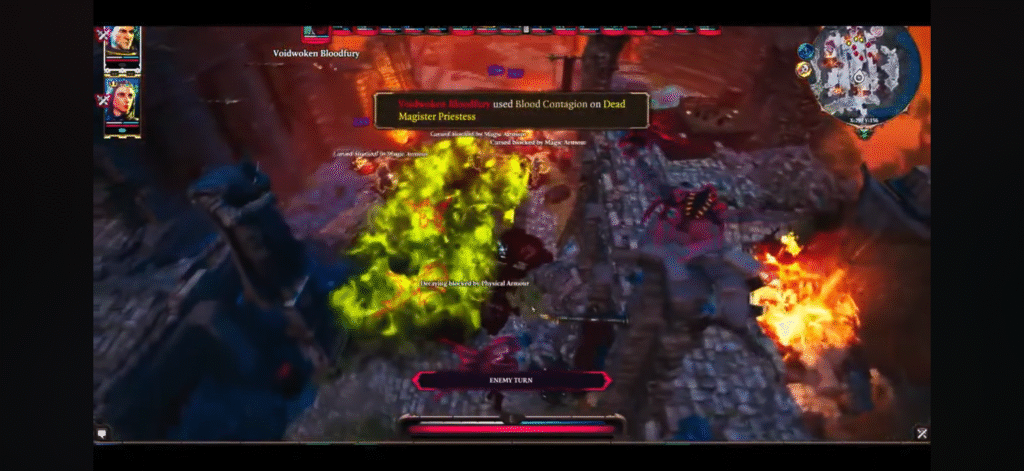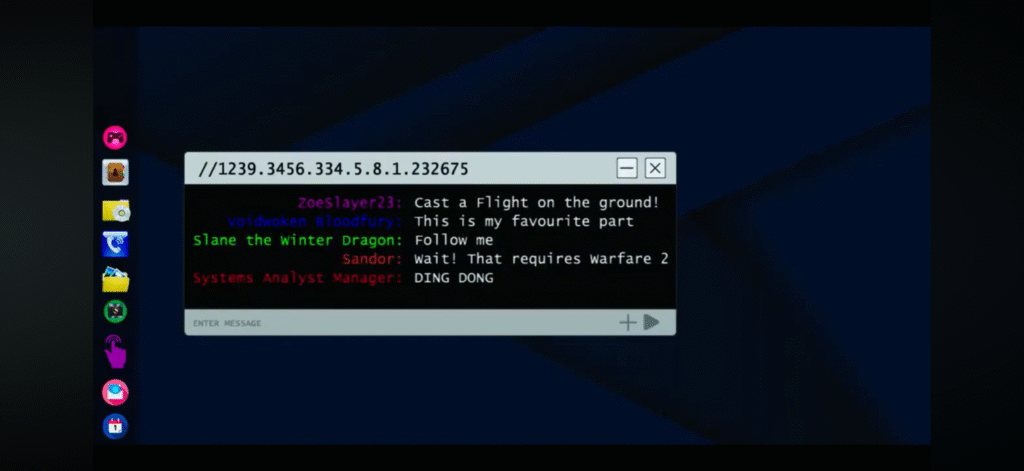In Impulse Unraveled: “Mind Of Fire,” teleportation isn’t a miracle; it’s a meat-grinder for the soul. The episode opens like a crime-scene prayer: quiet, clinical, and obscene. Limbs part ways with bodies, truths part ways with people, and the universe behaves like a faulty zipper, snagging on Henry’s fear until it tears. What follows is not empowerment. It’s the inventory of a curse.
The first tableau is almost tender in its cruelty. Henry vanishes with Bill Boone’s arm still in her grip—gone, like pocketing a receipt. Across the room, Nikolai watches life drain from Bill, then seals himself off with earbuds and a favorite song. It’s ritualistic indifference: the assassin as audiophile, embalming reality with a playlist while the floor cools around a corpse. Teleporters are a damaged congregation, and this is their liturgy.

Henry learns—again—that disappearance is not escape. Every blink out of existence leaves her mother stranded on the wrong side of the crisis. The power that can cross any distance can’t seem to bridge a hospital hallway. Teleportation helps Henry survive; it does nothing for the people who need her to stay.

Nikolai, ever the caretaker of calamity, scripts Henry’s survival the way a novelist outlines a chapter: make it all about Bill. Speak in the passive voice. Leave yourself out of the paragraph. He hands her an alibi like a fresh mask, the seams still warm from his hands. The lesson is simple: truth is for the unarmed.
Control arrives the way it always does in this series—through triage. Henry only learns to steer the void when her mother is bleeding out and help is a teleport away. Adrenaline becomes instruction, terror becomes technique. After that, anywhere is possible… and that’s the horror. The map is open, the exits are infinite, and so are the consequences.
Amid the blood-slicked ethics, the episode flirts with another American sacrament: legacy. The new admissions catechism is whispered like a threat: donate enough and doors unlatch, even as other doors are sealed shut for good. Merit is theater, money is the director, and futures are cast in platinum. In a story about powers you didn’t earn, the parallel lands like a bruise.
Then the Soprano-tinged confession: Henry says it out loud—she ripped Bill Boone’s arm off—and chose fight over flight. Townes absolves her because friends sometimes have to: it’s not your fault. The absolution barely dries before Henry is en route to a party with Jenna and Patty, because sometimes the only way to live with yourself is to stand in a room full of music and pretend your pulse belongs to the bass.
But the pretending cracks. Henry leans Joker-crooked and tells Jenna the punchline: Nikolai didn’t die. Together, they dissolved Bill Boone in acid. It’s the kind of sentence that shatters the air between two people. Henry watches herself from the outside, raises a glass to the monster in the mirror, and drinks until the outline blurs.
Elsewhere, violation arrives through fiber optic cable. Townes gets skinned by a voice that isn’t real but sounds like Zoe—deepfaked concern prying open the door. The hackers don’t just steal; they perform you. Then comes the package: a cluster of videos, mailed like a curse. We used to fear stalkers in the bushes; now they arrive tracked and insured.
Henry confesses again, this time to the appetite underneath the act. Jenna was right to be afraid. Killing Bill Boone wasn’t just an accident in a storm of panic—it was also what Henry wanted. The episode lets the admission hang there, rank and honest. The morality of want is a razor: it feels good to do the wrong thing, right up until it doesn’t.
Sleep offers no sanctuary. Henry slips into the woods in her dreams and finds a picture and a teapot—little domestic relics abandoned by Fatima in the wake of somnambulant teleportation. Breadcrumbs from another wanderer in the dark. Then her father appears, spectral and urgent: find me before Nikolai does. Premonition or threat, it’s the same feeling—time narrowing, options thinning.
Fatima’s late arrival in the broader tale feels like a whisper that finally finds volume: someone has been trying to warn Henry, not just about the man with earbuds, but about the machinery behind him. Clear Tech is a lighthouse built backward, its beam meant not to guide but to expose, to bleach people like Henry until there’s nothing left but data and ash. Nikolai is their blade; Henry is the specimen. “Fight or flight” isn’t a choice—it’s a leash, yanked from both ends.
By the final beat, the episode has made its thesis sickeningly clear: teleportation doesn’t set you free; it just makes your prison bigger. You can cross any distance except the one between who you were and what you did. And when the music starts—earbuds snug, party lights burning—you learn the ugliest truth of all: the song doesn’t drown anything out. It only keeps the monsters on the beat.